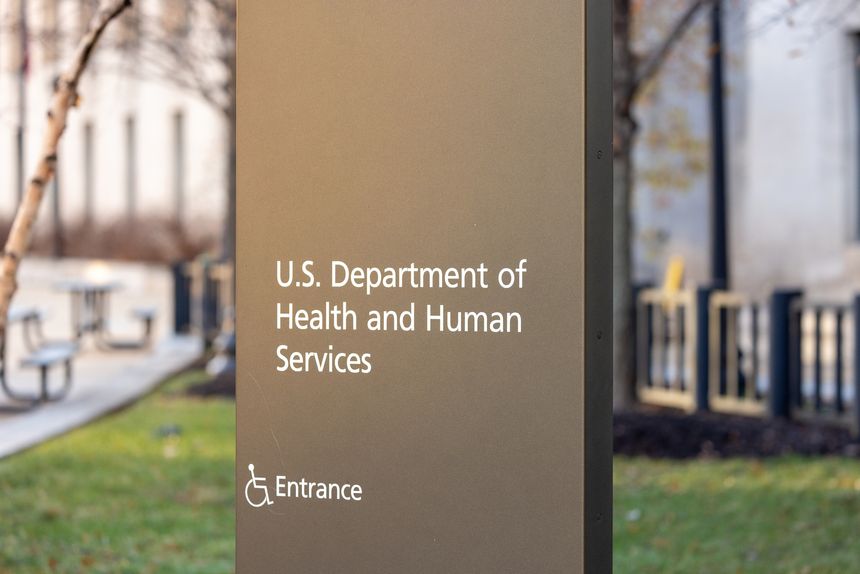The U.S. Department of Health and Human Services Office of Inspector General (“OIG”) issued Advisory Opinion No. 25-09 on August 12, 2025. The favorable opinion that found that a medical device manufacturer that was partly physician-owned qualified for the small entity investment safe harbor of the Anti-Kickback Statute (“AKS”).
The entity—a non-public developer, manufacturer, and seller of devices relating to emergency stroke treatment—sought an advisory opinion regarding whether the fact that it is owned in part by physicians, including the creator of the medical devices, who may “order or purchase [the] devices or recommend a hospital order and purchase [the] devices[]” would constitute grounds for exclusion from Federal health programs or the imposition of civil monetary penalties based on whether the arrangement ran afoul of the AKS.
Arrangement qualifies for AKS regulatory safe harbor
The OIG found that—based on the facts the entity provided—the arrangement implicates the AKS, because the physician owners (i) may receive profit distributions, and (ii) may order or purchase the entities products or recommend that other entities order or purchase those products, and that some of those products may be reimbursable by Federal healthcare programs. The use of the term “physician owners,” is not limited to medical practitioners. In fact, the provisions apply equally to any investor who is in a position to make or influence referrals to, furnish items or services to, or otherwise generate business for the entity.
Despite finding that the arrangement implicates the AKS, the OIG also found that the arrangement does not generate prohibited remuneration because it qualifies for the small entity safe harbor at 42 C.F.R. § 1001.952(a)(2), which protects financial distributions paid on investments in small entities. To qualify for protection under the small entity safe harbor, an arrangement must meet all eight of the conditions of that safe harbor, and in this instance, OIG found that the arrangement either met each condition, or the condition was inapplicable as follows:
- The value of the investment interests of each class of investment interests that are held or have been held in the previous fiscal year or previous 12-month period by physician investors is not more than 40%. In this case, physicians currently comprise approximately 35% of the entity’s ownership;
- The terms for all passive investors, including physicians, are and will continue to be the same;
- The terms for physician investors/owners do not relate to the previous or expected volume of referrals, items or services furnished, or amount of business otherwise generated;
- It is not, nor ever will it be, a condition of remaining an investor that a physician must make referrals of the product;
- Marketing of the products to passive investors is the same as to non-investors;
- The entity’s gross revenue related to the furnishing of health care items and services in the previous fiscal year or previous 12-month period that comes from referrals or business otherwise generated from investors is not more than 40%;
- The entity or any of its investors has not loaned nor will they loan money to, or guarantee a loan for, a physician so that that physician can obtain their investment interest in the entity; and
- As of the date the advisory opinion was issued, the entity had not made any profit distributions to any physician owners and has certified that, if it does make such distributions or make any other payments to investors based on their ownership interests, that the amount of any payment to an investor will be directly proportional to the amount of the capital investment (including the fair market value of any pre-operational services rendered) of that investor.
Accordingly, the OIG stated that, based on the facts provided, it will not proceed to bring an enforcement action against the entity.
What does this mean?
As one would expect from an OIG advisory opinion, it applies only to the entity requesting the opinion and only to the extent the facts the entity provided are true. The opinion cannot be relied upon by other persons or used as evidence to prove that any other person or entity did not violate the AKS. OIG further limited this opinion to note that it applies only to the exclusion and CMP provisions of the AKS and does not opine on whether the arrangement implicates any other law, including the Stark Law, the False Claims Act, or any Medicaid laws.
That said, this advisory opinion can be instructive on how to structure an arrangement to potentially qualify for the small entity safe harbor of the AKS, including keeping physician ownership and revenue from investors to less than 40%, and providing the same terms to all investors. It is important to note that this safe harbor is only available to non-public entities.
Reed Smith will continue to follow developments related to health care fraud and abuse enforcement. If you have questions about whether your existing arrangement or a contemplated arrangement could qualify for this or another safe harbor, would like advice on how to structure your arrangement, or would like assistance in requesting an advisory opinion from OIG, please do not hesitate to reach out to a Reed Smith attorney.



/Passle/67292836ee4aa642c0980b65/SearchServiceImages/2025-11-25-18-20-08-689-6925f358446e4178787070c1.jpg)
/Passle/67292836ee4aa642c0980b65/SearchServiceImages/2025-11-21-23-28-55-442-6920f5b7b12284320dbcd44e.jpg)
/Passle/67292836ee4aa642c0980b65/SearchServiceImages/2025-11-20-21-01-06-217-691f819226700f1b95b84e39.jpg)
/Passle/67292836ee4aa642c0980b65/SearchServiceImages/2025-11-13-02-39-50-388-691544f6d27e4830197c7465.jpg)